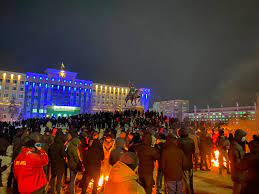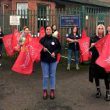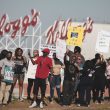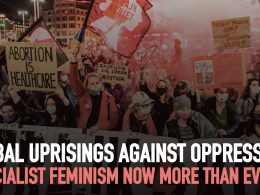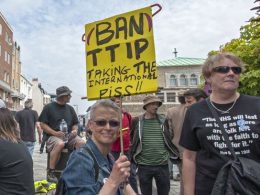By Dave Vallely
The spark for mass struggle in Kazakhstan was the decision by the government at the beginning of January to cut fuel subsidies. This decision more than doubled the price of gas and caused widespread anger, yet opposition to the Kazakh regime has been building up over decades and has been brought to a head by the pandemic.
Harsh quarantine measures have drastically affected incomes. The working class has long suffered brutal neo-liberal attacks on its living standards. At the end of last year in Mangystau, tens of thousands of oil workers were made redundant. They have been joined over the last year by sections of the middle class as their incomes have proved less stable and credit conditions worsened.
Decades of dictatorial rule
Kazakhstan is a former Soviet state ruled since independence in 1990 by the dictator Nursultan Nazarbayev, the former first secretary of the regional ‘Communist’ party who oversaw the restoration of capitalism. Nazarbayev ceded power in 2019 to Kassym-Jomart Tokayev, but remained in control of the important state security council.
The regime, like the Russian and Belarusian regimes, is built on very unstable and narrow foundations. It has stripped out any opposition forces that can channel discontent and concentrated all power and resources into the hands of a very narrow ruling elite.
This has meant that Tokayev responded to the recent protests with threats and then violence. What started as protests by oil workers and their supporters in Mangystau in West Kazakhstan within hours had spread right across the massive country. In some cities, police vehicles and buildings were attacked. Workers blockaded the main railway lines to prevent police and troop movements, while in Taldygordan, crowds heaved ropes around the statue of the hated Nazarbayev and hauled it down.
In Atyrau, protesters cheered while the hated riot police came out of their building and joined the protests. Elsewhere there are videos of troops fraternising with the protesters or of troops being disarmed en-masse by the crowds.
Russian imperialism intervenes
Tokayev appealed for assistance from the military alliance led by Russia, which led to the entry of a largely Russian force. Its role wasn’t to directly attack protesters, but to signify to the different cliques within the regime which side Russia was siding with. Tokayev, emboldened by this endorsement, has acted by “firing” the government, seized control of the state security council from Nazarbayev, and escalated the repression of protests by imposing curfews and a shoot to kill policy. Over 12,000 people have been detained since early January.
The protests in Kazakhstan are unlikely to be an isolated event, given the hardships people in the former Soviet states have had to face over the past 30 years and the unstable basis of the resulting regimes. The underlying social and economic causes of the protests remain unresolved. These protests are a repeat, on a higher level, of a mass uprising by oil workers in 2011 centred on the western city of Zhanaozen which was brutally repressed by the regime at the cost of at least 70 lives.
What the recent protests show is the urgent need for an independent working-class political alternative capable of rallying all those oppressed to end the rule of the oligarchs and capitalism.





